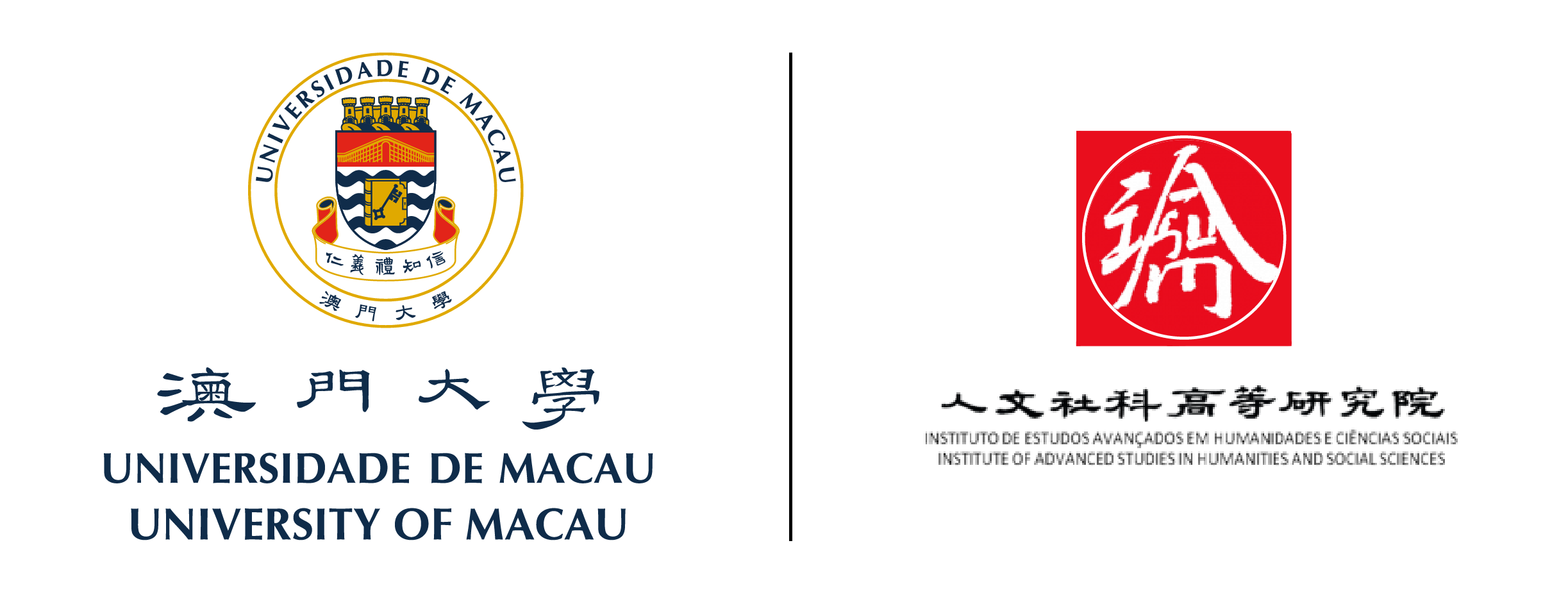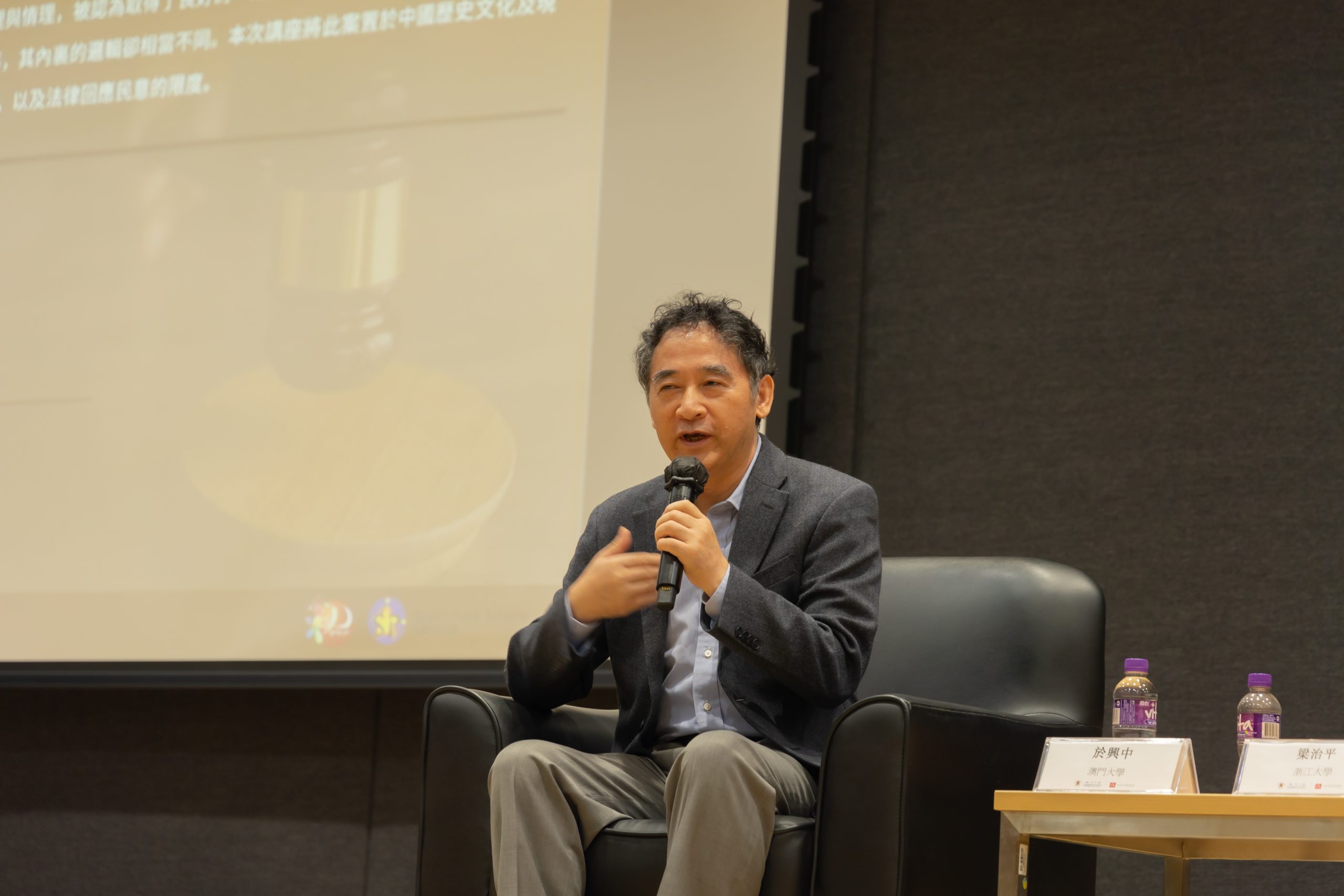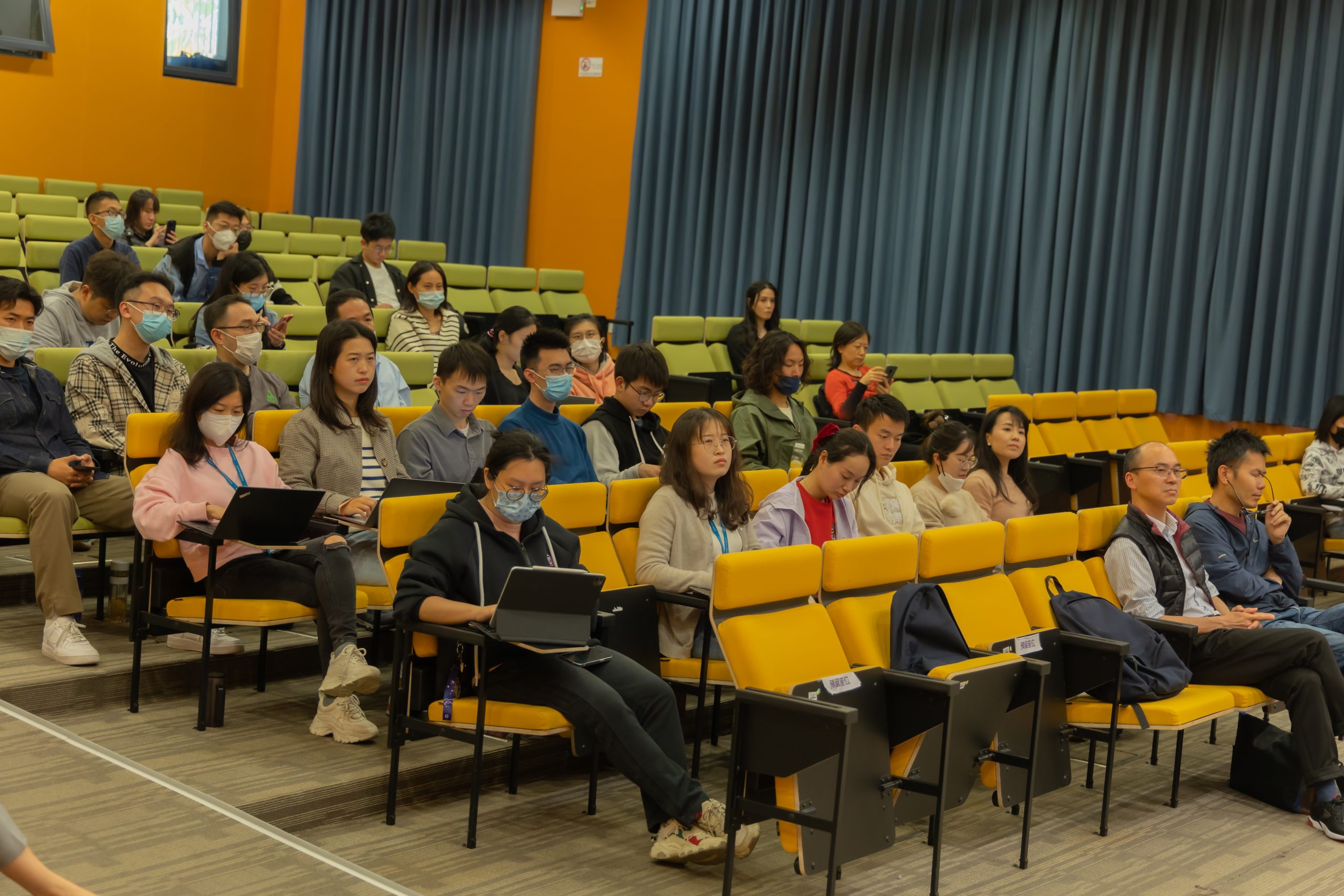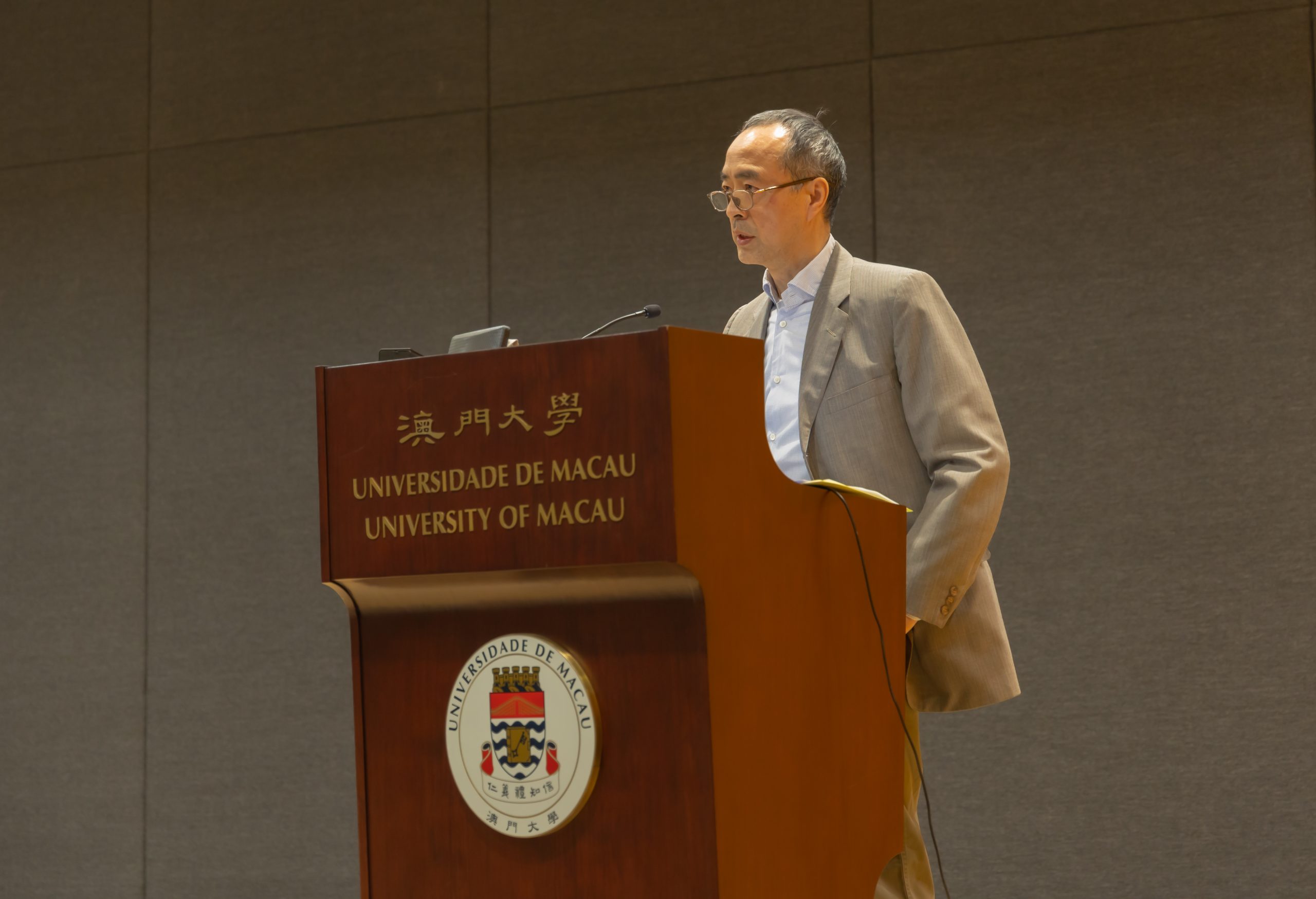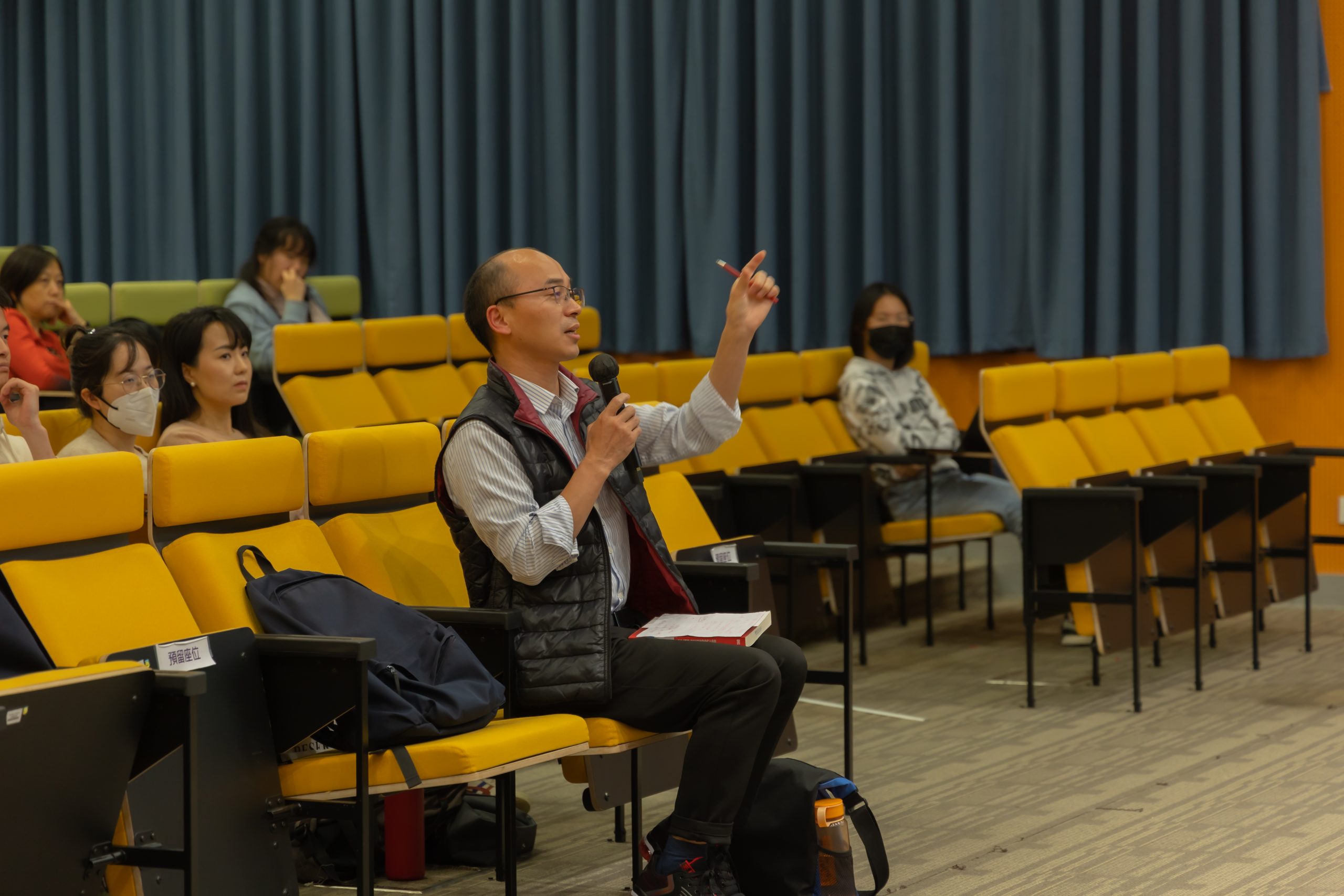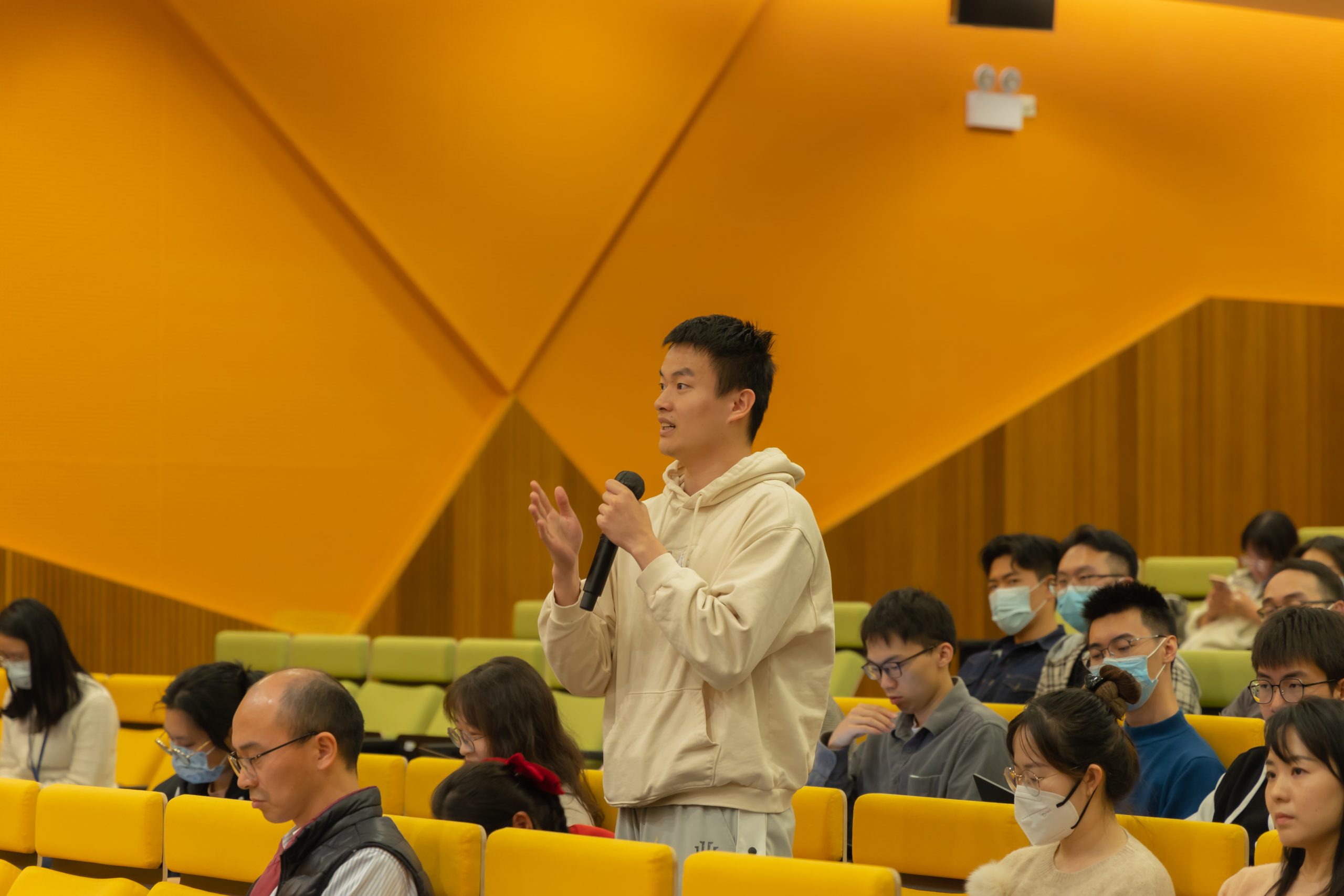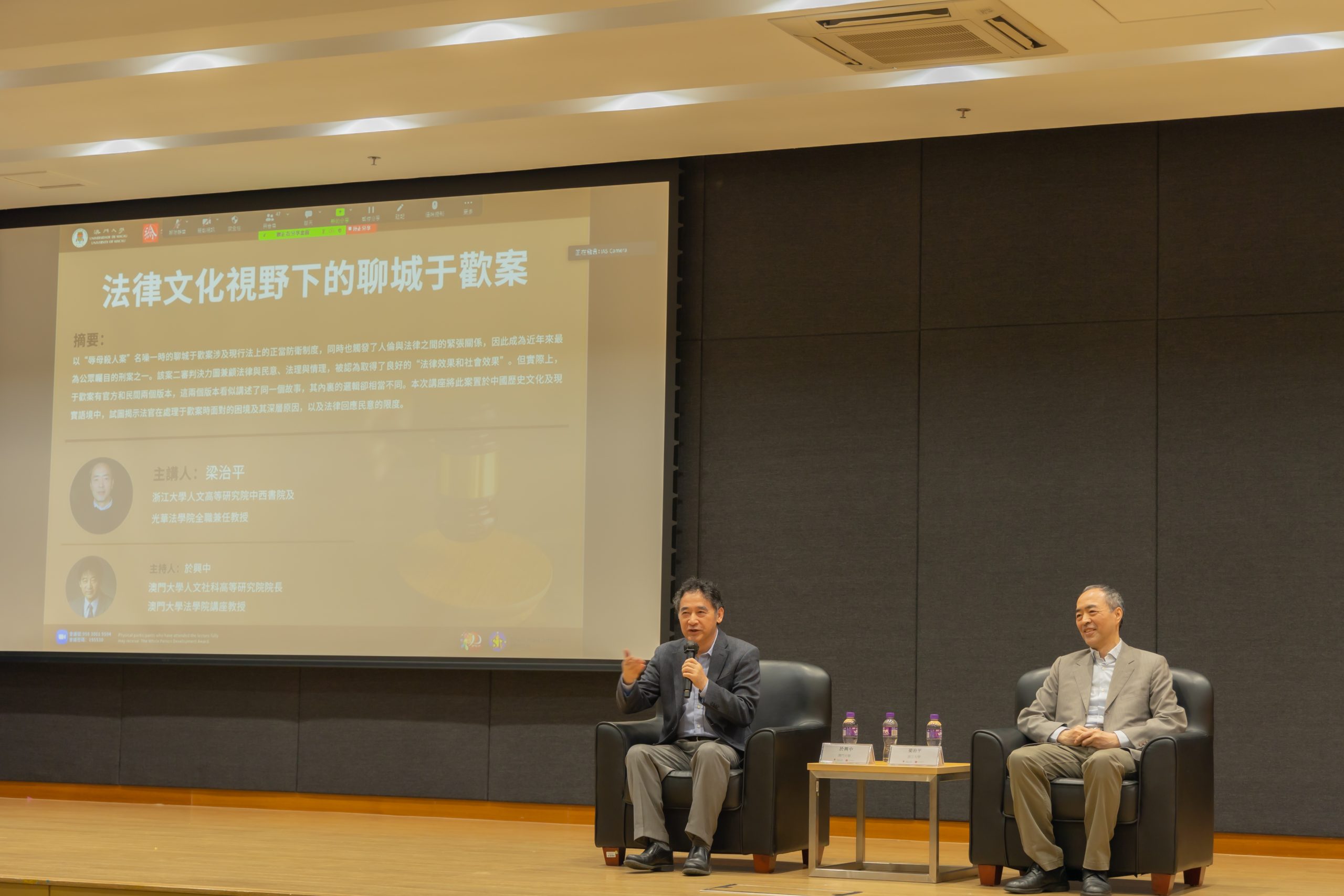IAS 2022-2023 Legal Culture Lecture – “Liaocheng Yu Huan Case from the Perspective of Legal Culture” was successfully held on March 3 in the Library Auditorium of the Wu Yee Sun Library of the University of Macau. We invited Professor Liang Zhiping, a famous Chinese jurist, who put the famous “Liaocheng Yu Huan case” in the context of Chinese history, culture, and reality, trying to reveal the difficulties faced by judges in handling the Yu Huan case and its underlying reasons, as well as the limits of the law to respond to the public. Professor Yu Xingzhong, the Director of the IAS, was invited to be the moderator.
Professor Liang first reviewed the facts and trial process of the case from a popular TV series “Bottom Line”. Yu Huan, the defendant in the “Mother Humiliation Case”, was sentenced to life imprisonment for the crime of intentional injury in the first instance. This judgment aroused strong criticism from the public. The sentence of the second instance was changed, and Huan’s sentence was reduced on the grounds of excessive defense and the victim’s fault, which was considered to have achieved good “legal and social effects.” Professor Liang believes that there are two different legal and folk interpretations of the Yu Huan case and the “mother humiliation case” in the story of the Yu Huan.
Secondly, Professor Liang focused on interpreting the keywords of legal reasoning and trial in the second-instance judgment of the Yu Huan case. Professor Liang finally said that although the judgment tried to combine law and public opinion, legal principles, and rationality, there were many confusions, contradictions, and inferences. The judgment has not really changed the conservative tradition of the judiciary in the application of laws related to self-defense, nor has it really responded to public opinion at the level of value and rationale.
The meeting was held online and offline, which attracted the attention and active participation of nearly a hundred participants from our school, and had a lively discussion on the topic of the interaction between public opinion and judicial trials, and the response to public opinion under the legal framework.

